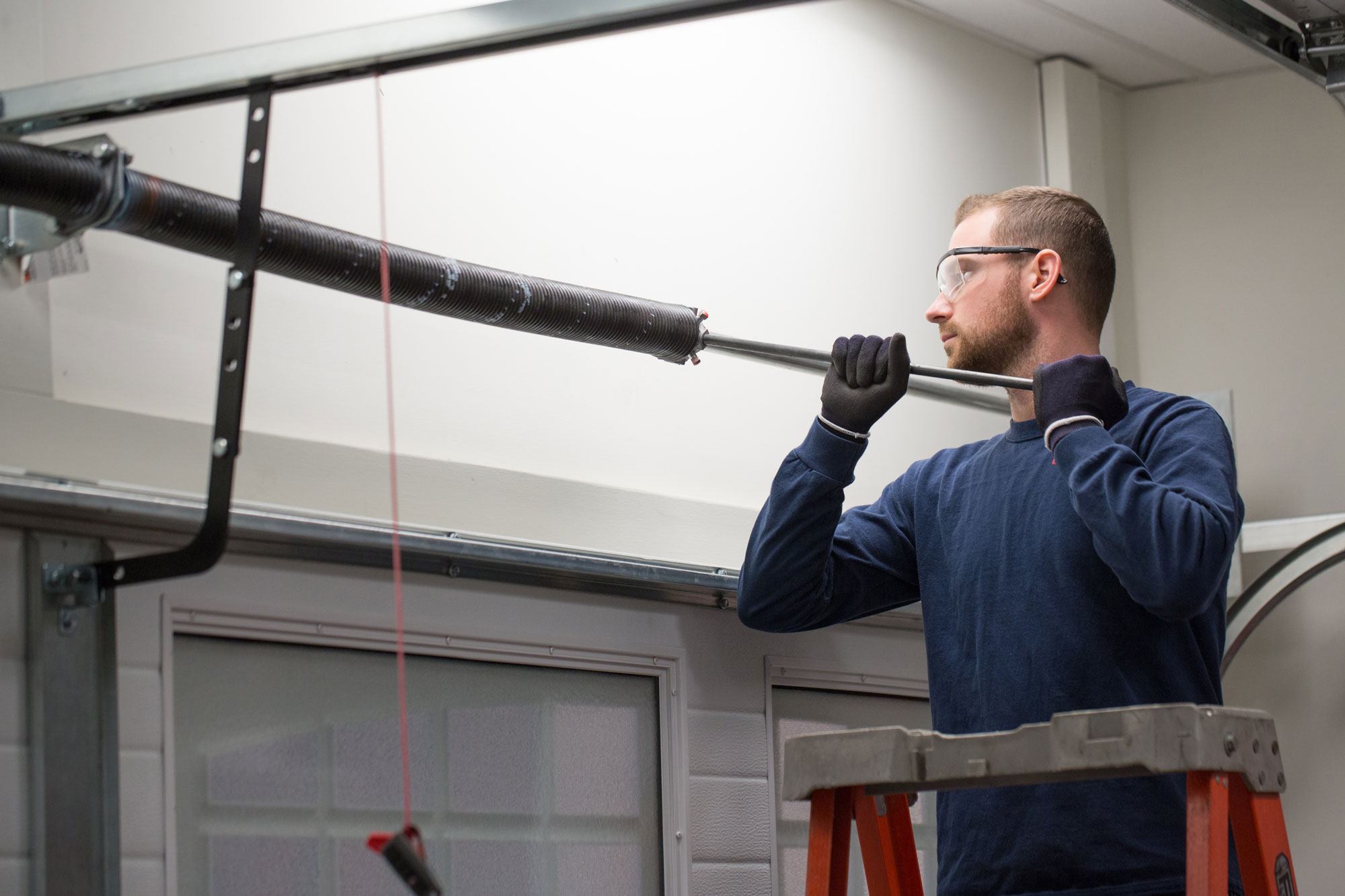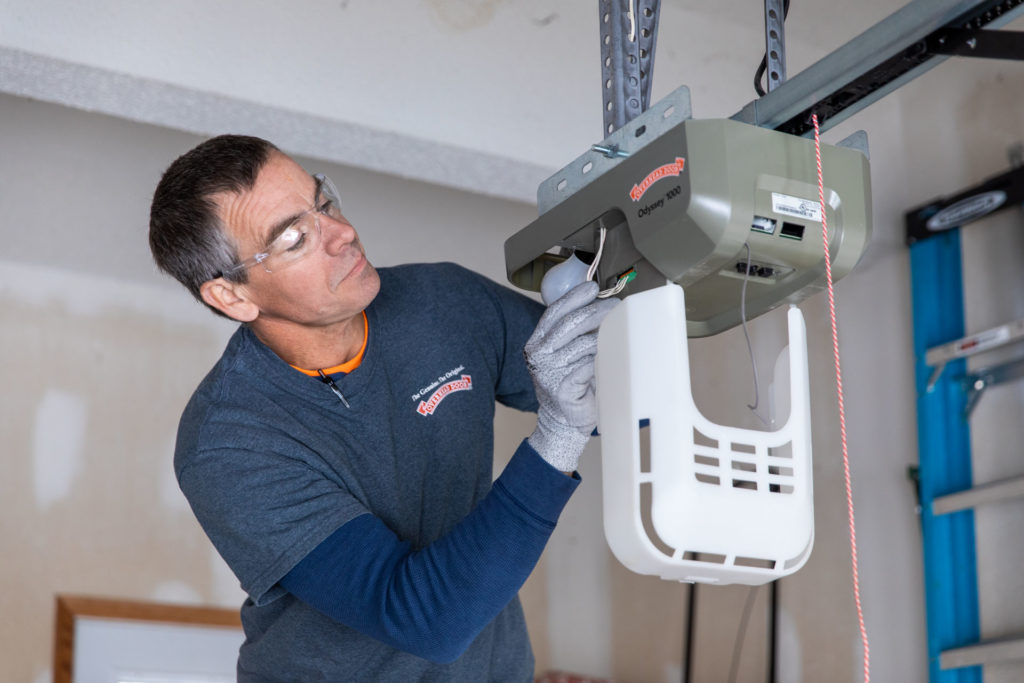06.25.2021
What Makes Garage Door Springs Break?

The springs on your garage door system are responsible for the heavy lifting. When the garage door is lowered, the springs gain tension. When raising the garage door, tension is released and the spring assists with the lifting. It’s important to note, your garage door springs have the most tension when the garage door is closed. As a result, most garage door springs break when the door is down. In the occasional instance the spring breaks while the door is in the open position, the door may come crashing down.
There are two types of garage door springs:
- Extension spring systems are mounted on either side of the garage door track. They extend and contract with the assistance of cables and pulleys when the door is in motion.
- Torsion spring systems typically use one or two tightly wound springs. The springs are located horizontally on a steel shaft and have cable drums at both ends. The torsion spring is mounted to the header wall above the garage door opening.
So, why do the springs break?
Wear and Tear
The most common garage door spring failure is everyday wear and tear. Most springs are rated for about 10,000 cycles – one cycle being the garage door going up and coming back down. That may seem like a lot, but consider that you go through a minimum of two cycles a day just getting the car in and out. Add to that errands, a spouse goes to work, kids open and close the door for any reason, those daily cycles can add up a lot faster than you think. If your garage door has become your “front door” and receives excessive use, it might be smart to consider getting extended lifespan torsion springs, which are rated for 20,000 or more cycles.
Rust
When rust develops on the spring for any reason, its lifespan will be dramatically shortened. Rust increases the amount of friction on the coils while it moves back and forth. In addition, the corrosion on the spring itself will weaken the coils and lead to failure more quickly.
Improper Maintenance
All garage door springs will fail eventually, but proper maintenance cannot only prolong the lifespan of the springs, but also alert you to a possible impending failure. A trained technician will do a visual inspection of the springs and the entire track system, which can reveal early signs of weakness. This could help prevent potentially destructive explosive breaking of the spring as well as the headache involved with fixing it as quickly as possible. In addition to lubricating the springs with proper grease, a trained technician will check the garage door balance and perform a safety check once a year.
We highly advise broken garage door spring repairs to be performed by professional technicians who possess the proper training and tools to complete the job safety.


